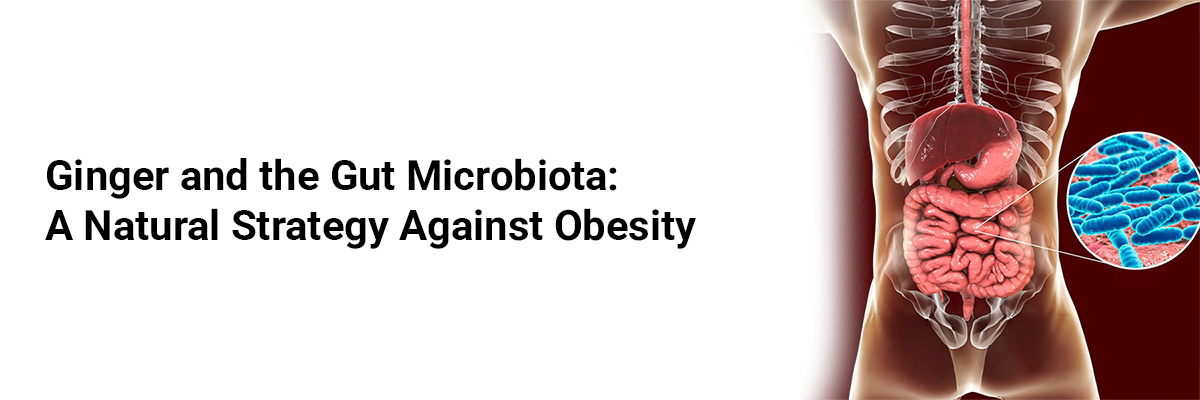
Ginger and the Gut Microbiota: A Natural Strategy Against Obesity
As obesity continues to escalate globally—affecting nearly one-fifth of women and 14% of men—there is a growing need for accessible, sustainable interventions. Recent scientific interest has focused on the gut microbiota, a complex microbial ecosystem that has a profound influence on energy metabolism, inflammation, and fat storage. A promising natural agent emerging in this space is ginger, which has been long used in traditional medicine and is now being investigated for its metabolic benefits through modulation of the gut microbiota.
A recent systematic review by Ghashghaei et al.1 highlights ginger's consistent and beneficial impact on the gut microbiota in the context of obesity prevention and management. The review analyzed nine studies—mainly preclinical, with one human trial—and found that ginger supplementation consistently increased beneficial microbial populations, such as Lactobacillus and Akkermansia, while reducing lipopolysaccharide (LPS)- producing bacteria known to drive systemic inflammation and insulin resistance.
Key findings from in vivo models revealed reductions in body weight, triglycerides, LDL cholesterol, and inflammatory markers, such as TNF-α and IL-6, following ginger administration. These benefits are attributed to ginger's bioactive compounds—gingerols, shogaols, and zingerone—which possess anti-inflammatory and antioxidant properties. These compounds can modulate the gut microbiota both directly and indirectly by influencing bile acid metabolism and promoting the production of short-chain fatty acids (SCFAs), both of which play critical roles in appetite regulation and glucose homeostasis.
One noteworthy clinical study by Crichton et al.2 evaluated ginger powder supplementation in healthy adults and reported an increase in beneficial gut bacteria, as well as an improvement in dyspeptic symptoms; however, changes in microbial diversity were limited. Another animal study by Wang et al.3 demonstrated that ginger intake significantly altered the Firmicutes/Bacteroidetes ratio and reduced inflammatory cytokines, supporting its anti-obesity potential.
Despite these promising findings, current evidence remains preliminary. Most studies are limited to animal models, with variations in ginger dosage, form, and duration of intervention. Therefore, high-quality, long-term clinical trials are crucial for determining optimal dosing and confirming efficacy in diverse human populations. In conclusion, ginger appears to be a promising adjunct in obesity prevention strategies, acting through modulation of the gut microbiota. Its affordability, cultural acceptance, and safety profile make it an attractive candidate for integrative metabolic health interventions.
Sources: 1. Ghashghaei N, Kemmak AR, Goli E, Astaneh SS, Dahri M, Habibi MRM. Beneficial effects of ginger on prevention of obesity through modulation of gut microbiota: a systematic review. J Health Popul Nutr. 2025;44:200.; 2. Crichton M, Marshall S, Marx W, et al. Effect of ginger root powder on gastrointestinal bacteria composition and related outcomes: a double-blind placebo-controlled trial. J Nutr. 2023;153(11):3193–206.; 3. Wang J, Wang P, Li D, et al. Beneficial effects of ginger on prevention of obesity through modulation of gut microbiota in mice. Eur J Nutr. 2020;59(2):699–718.













Please login to comment on this article